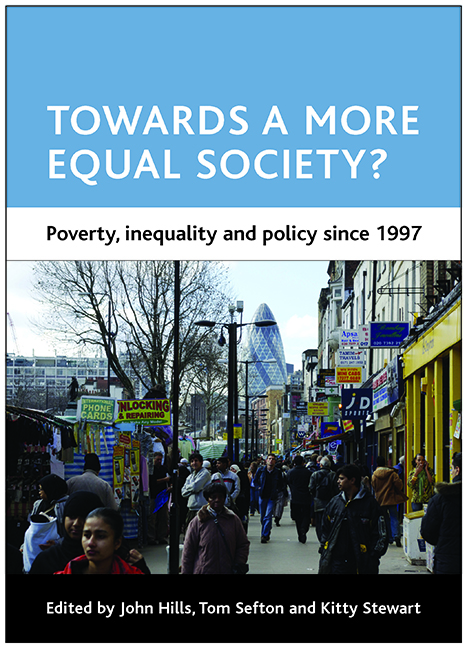four - Education: New Labour’s top priority
Published online by Cambridge University Press: 22 January 2022
Summary
Introduction
Education has been central to the New Labour mission – its top priority in every election manifesto. The government has focused on raising school standards and on expanding opportunities for post-compulsory education and training in order to tackle what Gordon Brown (2007b) has referred to as the problem of ‘no room at the bottom’ – the disappearing demand for unskilled and low-skilled jobs in Britain's economy. Reducing inequality has been a central theme for economic as well as social reasons. ‘For generations’, New Labour has argued, ‘our country has been held back by an education system that excelled for the privileged few but let down the majority’ (Labour Party, 2005). In the 2004 Comprehensive Spending Review, tackling the attainment gap between more and less advantaged groups became a specific government target and Gordon Brown has since reaffirmed this commitment, emphasising its importance to the achievement of ‘social justice for all’.
The overall picture is one of investment and expansion. UK public expenditure on education has risen as a percentage of gross domestic product (GDP) from 4.7% in 1996-97 to 5.5% in 2006-07, and is now at its highest level for 30 years (DCSF, 2008a), rising on average by 4.3% per year in real terms, compared with 1.4% under the Conservatives (Sibieta et al, 2008), and nearly reaching the Organisation for Economic Co-operation and Development (OECD) average. In England, per capita spending on schools rose 84% from 1997-98 to 2007-08 (DCSF, 2008b), including a big increase in capital expenditure with a commitment to renew the buildings of every secondary school by 2020. There are now over 35,000 (9%) more teachers and many more support staff, leading to a large reduction (from 27.9% in 1997 to 10.8% in 2008) in the percentage of primary school classes with more than 30 pupils (DCSF, 2008c). The total number of students (home and overseas) in higher education (HE) increased by nearly a third between 1997 and 2005-06.
New Labour has presided over an expansion of education policy ‘through the day and through the lifecourse’ (Ball, 2008). For schools, the initial focus was on standards in primary schools, shifting to an emphasis on secondary schools in the second term and more tailored and individualised provision in the third.
- Type
- Chapter
- Information
- Towards a More Equal Society?Poverty, Inequality and Policy since 1997, pp. 71 - 90Publisher: Bristol University PressPrint publication year: 2009
- 1
- Cited by

